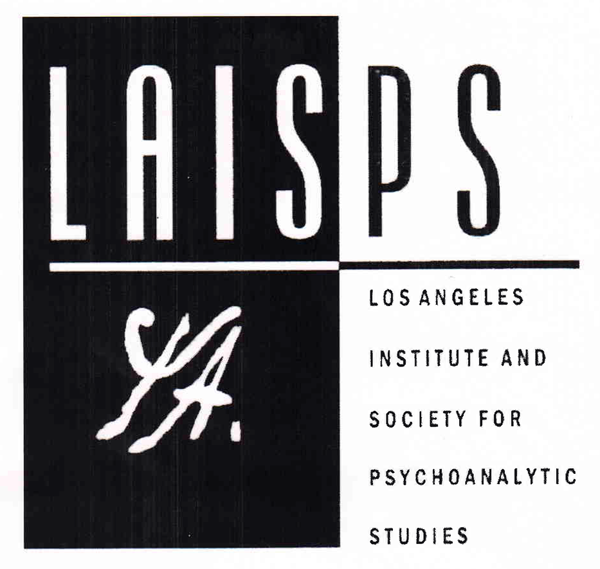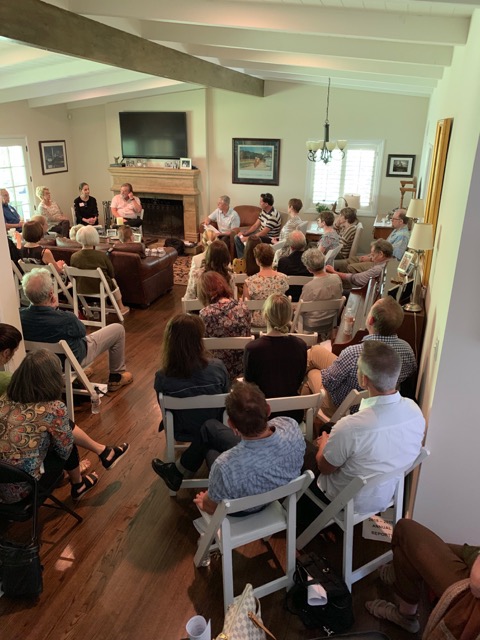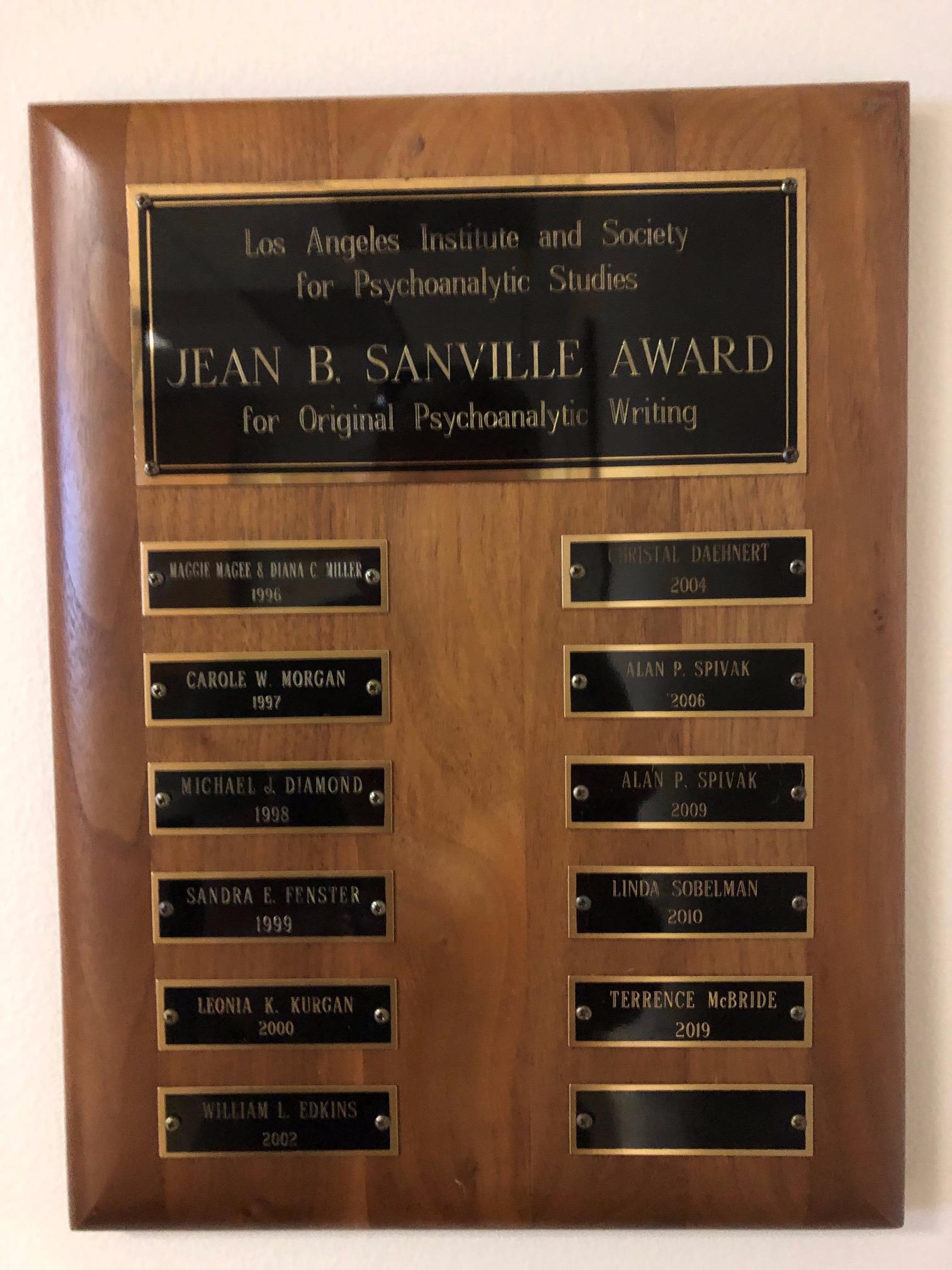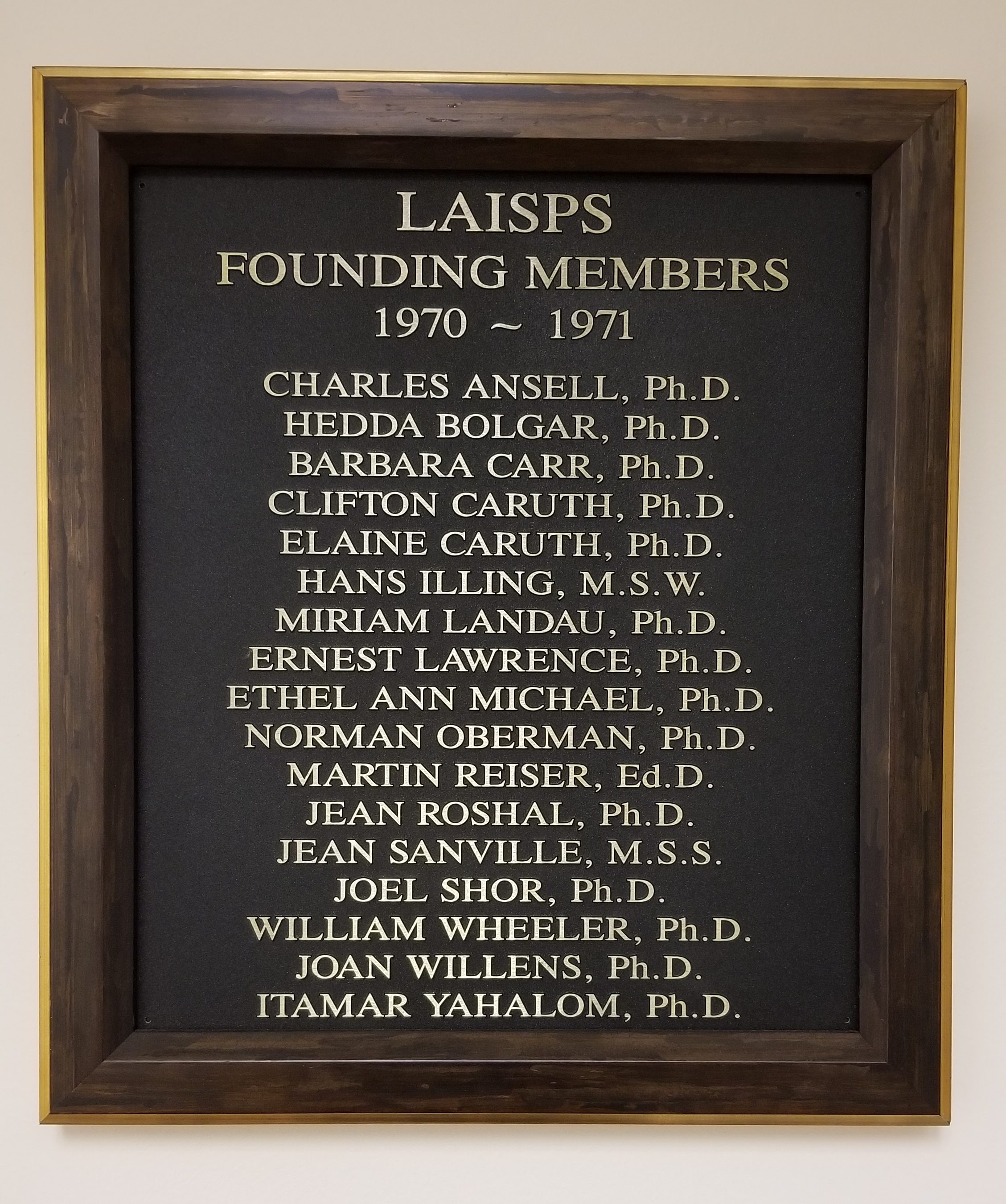The Los Angeles Institute and Society for Psychoanalytic Studies

The Los Angeles Institute and Society for Psychoanalytic Studies (LAISPS) is on the eve of its 50th anniversary in 2020. We will also celebrate then our 25th year as a Component Society within IPA. This “baby” has, indeed “come a long way.” In conjunction, we are planning a major conference next Spring entitled “Twins: Multiple Perspectives on Multiples,” which will feature major international experts. We encourage you to go to our website, laisps.org for further information about our Society’s programs, philosophy and history.
LAISPS is a vibrant Institute with 75 members and 34 candidates in our psychoanalytic training program based on the Eitingon model. LAISPS membership also includes a number of eminent national and international colleagues, including twelve Corresponding and Honorary Members. LAISPS has offered IPA certification in Psychoanalysis, as well as a Ph.D. and a Psy.D. in psychoanalysis to mental health professionals and inter-disciplinary research analysts.
 Central to LAISPS’ purpose is to sponsor an ongoing spirit of development. In doing so, we mentor developing candidates into competent analysts, and graduate analysts into training analysts, teachers, and writers. We also strive to assist members of the local community to become skillful psychoanalytically oriented therapists.
Central to LAISPS’ purpose is to sponsor an ongoing spirit of development. In doing so, we mentor developing candidates into competent analysts, and graduate analysts into training analysts, teachers, and writers. We also strive to assist members of the local community to become skillful psychoanalytically oriented therapists.
Adhering to a philosophy of independent and critical psychoanalytic thinking, our training program is based on a spirit of scientific inquiry and respect for the humanistic concerns advocated by the original founders of psychoanalysis. Academic course begins with the study of Freud’s work, whose thought serves as the springboard to the rest of the program. Candidates are then introduced to a broad range of psychoanalytic perspectives, including classical psychoanalysis, ego psychology, object relations theory, and the work of Klein and Bion. Perspectives from self-psychology, intersubjectivity, and relational theory complete the coursework. Instructors are encouraged to address contemporary revisions and debates within the various theories in order to highlight psychoanalysis as a living, growing body of thought.
Through coursework, supervised analytic cases, and personal analysis, candidates enjoy a rich and deeply meaningful learning experience that provides an essential foundation from which to establish their unique psychoanalytic identities. LAISPS is open to the theoretical, clinical, and research contributions of all mental health and allied disciplines and seeks to provide education for licensed professionals of varied backgrounds.
 We strongly support psychoanalytic writing and original scholarship. Two annual awards are presented for psychoanalytic scholarship, originality, and literary merit – one for members (Jean B Sanville Writing Award) and the other for candidates (Michael J Diamond Writing Award).
We strongly support psychoanalytic writing and original scholarship. Two annual awards are presented for psychoanalytic scholarship, originality, and literary merit – one for members (Jean B Sanville Writing Award) and the other for candidates (Michael J Diamond Writing Award).
In addition, LAISPS members have made extensive, significant contributions to the psychoanalytic discourse, including two important volumes for the CIPS Series published by Karnac/Routledge on The Boundaries of Psychoanalysis, both edited by and including chapters by our members. The first is entitled, The Second Century of Psychoanalysis: Evolving Perspectives on Therapeutic Action (edited by Michael Diamond and Chris Christian, 2011) and the second, Trauma and the Destructive-Transformative Struggle: Clinical Perspectives (edited by Terrence McBride and Maureen Murphy, 2019).
Numerous current and former members have contributed chapters to one or both texts, including Hedda Bolgar, Chris Christian, Michael Diamond, Pam Dirham, Morris Eagle, Thomas Helscher, Nancy Hollander, Beth Kalish, Terrence McBride, Maureen Murphy, Preston Lear, Lori O’Brien, Peggy Porter, Stephen Portuges, Leo Rangell, Linda Sobelman, Alan Spivak and Peter Wolson. Current LAISPS members have made further scholarly contributions including highly regarded books written by Joseph Bobrow, Christopher Bollas, Michael Diamond, David Downing, Victoria Hamilton, Beth Kalish, Terrence McBride, Marjorie Schuman, Peter Wolson, and Harriet Wrye. [Please see Resources at our website]
LAISPS members have also made numerous scientific and clinical presentations on the local, national, and international level and have served as readers and reviewers of journals, as well as contributors to political discussions, blogs and writings from a psychoanalytic perspective. They have also as members of important regional and international committees. Students and all members enjoy the privilege of using our comprehensive Library, next to our classrooms and administrative space. Two charitable scholarships have been established to defray candidate costs. After graduation, members often join or establish their own study groups to further clinical and conceptual skills.
members of important regional and international committees. Students and all members enjoy the privilege of using our comprehensive Library, next to our classrooms and administrative space. Two charitable scholarships have been established to defray candidate costs. After graduation, members often join or establish their own study groups to further clinical and conceptual skills.
Nowhere is our commitment to psychoanalytic development more apparent than in our Extension Division, the brainchild of Drs. Elaine Rose and Alan Spivak. Since 1982, it has served as a principal source of outreach to the larger mental health community by creating a wealth of psychoanalytic classes and seminars for the southern California community. Several nine-month long programs created and taught by LAISPS members also augment our extension “outreach” program including: The Psychoanalytic Psychotherapy Program; Altered States of Body and Mind (focusing on addiction and eating disorders); The Trauma Studies Program; and the Infant, Early Childhood and Parent Psychotherapy Program.
Our members and candidates also offer Professionals Affiliated with LAISPS (PALS) for licensed clinicians interested in psychoanalysis, The Student Society for psychoanalytically-oriented graduate students, and The Affiliate Society for practicing psychoanalytically-based clinicians. Over the past three decades, our Program Committee has produced a rich diversity of contemporary psychoanalytic workshops and scientific meetings featuring American and international analysts. Presentations of candidates’ final membership papers are also encouraged.

An abbreviated history of LAISPS: For a more complete description, please refer to www.laisps.org for a timeline history of LAISPS (due to space limitations, only some highlights of our past will be presented).
During the 1950’s there was widespread interest in psychoanalytic education throughout the Los Angeles area, but formal psychoanalytic training was not available for non-medical mental health professionals in the U.S. As a result, a group of psychologists interested in the study of psychoanalysis began to arrange a variety of informal study groups, lecture series and weekend workshops to establish an ongoing forum in psychoanalysis for psychologists, social workers and other mental health professionals. More than a decade later, Charles Ansell, Hedda Bolgar, Ernest Lawrence, Norman Oberman and Martin Reiser met to plan a training institute to offer formal training in psychoanalysis to non-medical mental health professionals. As a result, LAISPS became the first interdisciplinary institute in Los Angeles.

Though officially founded in 1970, it was not until 1987 that the GAPPP restraint of trade lawsuit against APsaA and the IPA, filed by four psychologists representing the American Psychological Association’s Division 39, was settled to allow non-APsaA societies in the United States to become independent IPA component societies. Along with three other societies, LAISPS’ membership in the IPA, led directly to the founding of The Confederation of Independent Psychoanalytic Societies {CIPS) in 1992. Peter Wolson, as President of LAISPS, was a co-founder of CIPS. We continue to provide leadership in CIPS, to enthusiastically attend the CIPS clinical conferences biannually, and to contribute greatly to its various programs, such as the CIPS Book Series and the board certification in psychoanalysis.
When our pioneering members first gathered to found and form the Institute, one of the first issues they had to address was who among them would be training analysts. During LAISPS’ earliest years, training analyst status became a self-appointment, guided by conscience and no separate committee of training analysts was needed. However, upon the first graduating classes, it became increasingly clear that the process of designating the steps to Training Analyst (TA) status needed coherent standards and processes. Study groups were formed to serve as clinical “testing grounds” for aspirants and the now-long-standing Committee of Training Analysts (COTA) went through iterations before achieving its present form.
In 2000, we jointly celebrated our 30th anniversary and the 80th birthday of LAISPS first president, Ernest Lawrence. The next decade generated an unparalleled degree of creative inspiration and growth. The Ernest S. Lawrence Trauma Center was begun, with pro bono volunteer analysts meeting in a

church to provide counseling, education and support with “at-risk” teenage mothers and their infants. Simultaneously, The Soldiers Project was borne out of Judith Broder’s interest in Iraq war veterans and analysts from all of the LA Institutes joined her to establish a program in six states that eventually provided pro bono, long-term treatment for returning vets, their families and relatives. Dr. Broder was later recognized by President Obama with our nation’s highest civilian award for her work.
In more recent years, we have begun to experiment with actively collaborating with our “sister” Los Angeles IPA Societies (NCP and PCC) in putting on conferences and workshops that are co-supported and feature speakers and discussants from all three Institutes. The major Los Angeles conference in the fall of 2018 by the Committee on Women in Psychoanalysis (COWAP), “Psychic Survival in the Face of Misogyny: The Dialectic Between the Internal and the External Glass Ceiling” was a primary example.
“To Light A Candle,” a video tribute to our Founders, follows. It is also available for viewing at laisps.org
Collaboratively written by Lanning Melville, LAISPS President, and Past Presidents, Terrence McBride, Peter Wolson, and Beth Kalish (Current IPA Representative); as well as Michael Diamond and Alan Spivak.